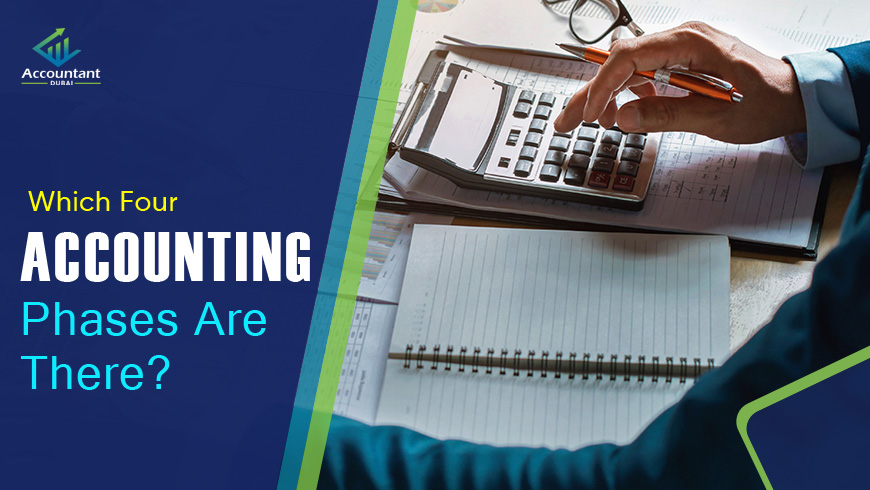
Financial statements are crucial for your company since you cannot manage costs, sell your company, or acquire financing without them—the accounting cycle results in producing these statements. Therefore, many employers require a continuous cycle of duties to run their firms effectively. This cycle consists of several stages intended to convert a company’s entire financial data into financial statements.
As a result, this blog will explain this cycle to you in four manageable phases.
What Is a Cycle of Accounting?
The accounting cycle is the procedure for gathering, compiling, and presenting financial and business data to the interested stakeholders of a corporation. The accounting process comprises a series of actions, or phases of the accounting cycle, representing the orderly execution of linked accounting duties.
These are significant accounting cycle responsibilities: recording business transactions, creating adjusting entries, summarising account information, checking account information, and creating financial statements.
Why Does the Accounting Cycle Exist?
The correct sequencing of the accounting cycle ensures that your organisation’s financial reports are accurate, consistent, and compliant with official financial accounting standards. AS per accounting firms Dubai, an accounting cycle ensures that all of the funds flowing through your company are “accounted for.”
Why Does the Accounting Cycle Benefit Your Company’s Financials?
Regardless of how small your firm is or whether you employ cash accounting systems, you can gain from this cycle in several ways. Notifying you that you haven’t missed anything during the process ensures that your balances are accurate. Second, it shows the actual financial situation of your business.
Additionally, this cycle helps you classify and modify the transaction correctly. It makes sure that you and your accountant have a clear understanding of your company’s financial soundness.
The Four Essential Phases in Accounting
Accounting consists of the four fundamental steps of recording, classifying, summarising, and evaluating financial data. Although it’s not formally part of the accounting process, communication is just as important. After analysis, all accounting data must be correctly distributed to the relevant parties. Accounting reports must be created and distributed, containing more details than just the fundamental income statement and balance sheet.
Various modifications are typically required for the four-step accounting cycle to work with each specific company’s business model and accounting practices. One main worry is usually changing to accrual accounting instead of cash accounting.
The fundamental stage of accounting, known as the recording, is often referred to as bookkeeping services. During this phase, all financial transactions are systematically and chronologically recorded in the proper books or databases. The books and paperwork used to create accounting records are used to create financial statements. Assets, liabilities, ledgers, journals, and other supporting documents like invoices and cheques are all kept in accounting recorders.
The classification stage of accounting involves grouping related items under a given name, category, or account. This stage employs a systematic study of the recorded data, wherein all transactions are compiled in one location. The book in which classifications are kept is called a “ledger.” The book that serves as a record of categories is referred to as a “ledger.”
Each accounting period, such as a month, quarter, or year, has data that needs to be summarised. This is known as the summarising phase of accounting. For internal and external users of the accounting statements, the data must be presented to comprehend and utilise. It is frequently used to supplement written material with graphs and other visual components.
The accounting process’ interpretation phase, which deals with examining financial data, is an essential tool for making decisions. This last function interprets the recorded data to enable end-users to reach relevant conclusions about the financial health of an organisation or individual account and the profitability of company operations. The following step is to create future plans using this data and policies to carry them out financially.
Principles Of the Accounting Cycle
The fundamental accounting principles must be thoroughly understood to comprehend the accounting cycle. You must understand the accrual concept, the matching direction, and revenue recognition (the process through which a business can record sales revenue).
The three most crucial phases of the accounting cycle—creating an income statement, balance sheet, and cash flow statement—can be accomplished using the core ideas discussed above.
Endnote
The accounting cycle can be complex for business owners without a background in accounting or bookkeeping services. Therefore, the professionals advise hiring a qualified accountant firm Dubai like Accountant Dubai to manage everything for you. Additionally, if you hire a pro like us, you may focus your time, effort, and money more effectively on other areas of your company.
BackWe are purely a marketing company specializing in lead generation via digital marketing for Accounting and book Keeping industry and we then pass on these leads to relevant Accounting Firms as customer referrals and our role starts and finish as soon as customer details are handed over to accounting firms in Dubai UAE. The entire purpose for this website/portal is lead generation.
Copyright © 2021, Accountant Dubai, All Rights Reserved.